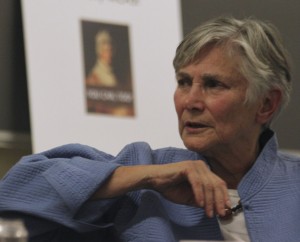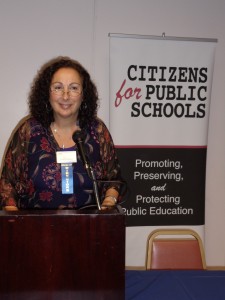The ballot initiative by the numbers:
Words: 2826
Pages: 5
Sections: 11
Provisions supported by data-driven scientific research: 0
Just the FAQs
The “Stand for Children” campaign is called “Great Teachers, Great Schools.” What does the ballot initiative do to help teachers improve their teaching and become “great teachers”?
Nothing. It’s not about that.
What does the Stand proposal do to make schools great—Cut class size? Improve leadership? Lengthen learning time? Help parents get more involved with their children’s learning?
No. It’s not about any of those things.
So what is the “Stand for Children” proposal about?
Many things. One of them is that new, untested teacher ratings would drive critical staffing decisions including layoffs and transfers. (However, principals could ignore the ratings—see below.) To read more, click here. → Read More





